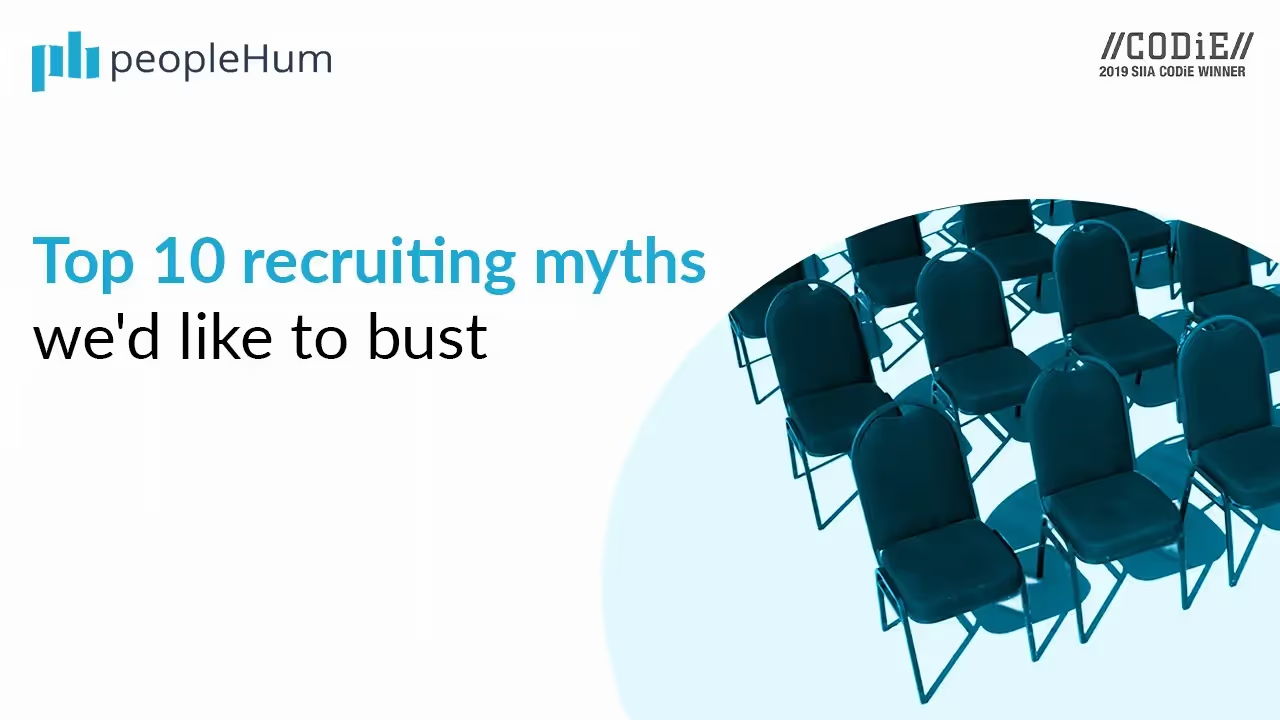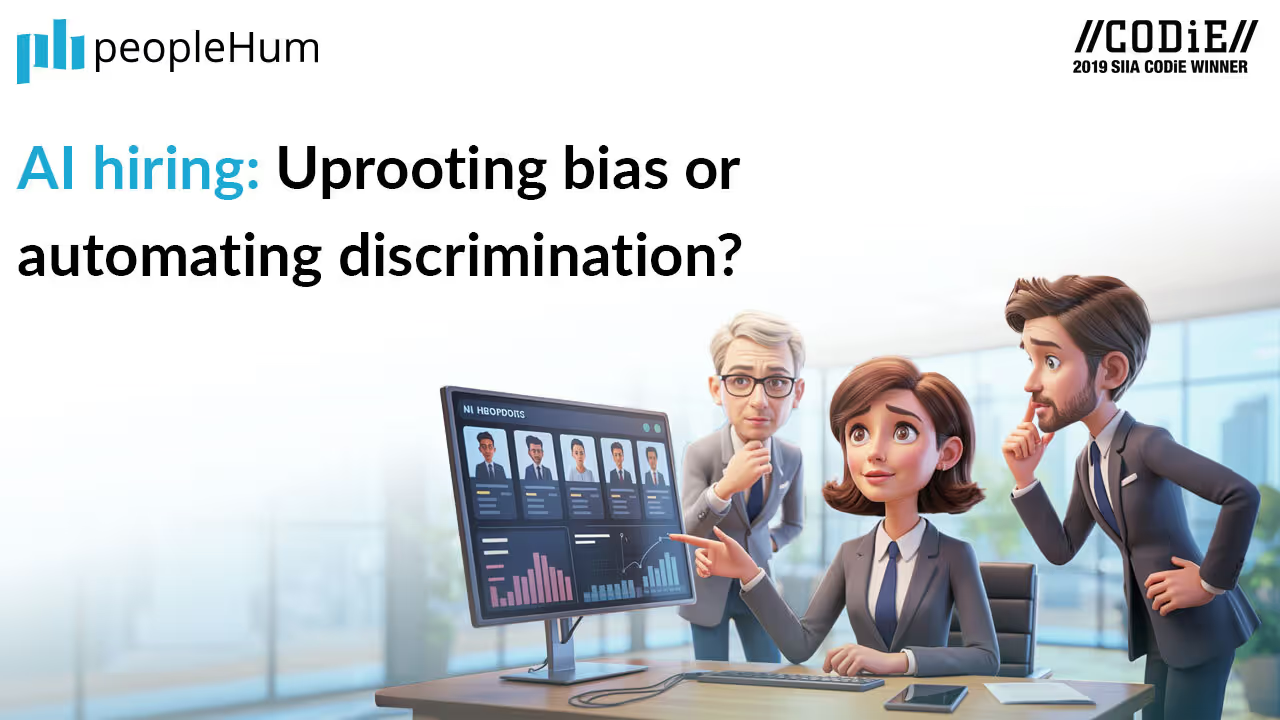It goes without saying that recruiters play a valuable role in a person's job search and career advancement. But most of us have no understanding of what goes on behind the scenes at recruiting because this is a murky field with a conspicuous lack of great writing on the subject.
There are many misconceptions about recruiters and the hiring process. As recruitment appears to be a dark box, candidates tend to share complaints, propagate rumours, and support one another. In this article, I'd want to throw some light on some prevalent myths about the hiring process.
Here's a rundown of some of the most common recruiting myths, with some of the facts behind them.
Top 10 Recruiting Myths we'd like to bust
Recruiting Myth #1. The perfect ‘unicorn’ candidate exists
The notion of a “perfect candidate" is a subjective one. What may be “ideal” for one hiring manager may be the opposite for another. The ground reality is, such candidates - similar to “unicorns” - are often mythical creatures who are nearly impossible to attract and hire. Many positions go unfilled in the pursuit of these applicants. Candidate after candidate gets rejected. The opening gets old until it must be eventually closed with the best available candidate - for the sake of business continuity.

Recruiting Myth #2. “Recruiting is just like sales”
True, both sales and recruiting use pipelines and funnels. Both sales and recruiting include chasing, calling, and pitching, also true. But no, recruiters do not "sell candidates to organisations." Recruiters also don't "sell" jobs to job seekers. Because neither candidates nor jobs are as marketable as objects.
It is assumed, similar to other hiring myths, that salesmen can readily learn how to recruit without having to learn anything new. Yes, some sales talents are challenging to master. They can also make the shift to recruitment much easier. They aren't, however, the same as recruitment abilities.
Saying that one profession is "exactly like" another minimises the particular challenges that job presents and undermines the people who work there.

Recruiting Myth #3. The more assessments, the better
Contrary to popular belief, having more assessments is not necessarily better—in fact, it can sometimes be worse than having too few assessments. Additional tests that don’t identify the best fit for a position will result in poorer hiring judgments than if they were not employed at all. Worse, too many lengthy tests might detract from the candidate experience and reduce the candidate pool's size. These long screening tests cause otherwise good prospects to drop out of the process, lowering the quality of recruits.
Recruiting Myth #4. "Passive candidates make a better hire than active candidates"
One of the hiring myths that receives least amount of attention is the belief - passive candidates (those who are not looking for a job) are better than active candidates (those who are actively looking for a job). This is a lowkey prejudice or "soft bigotry" against active candidates.
Active candidates are tagged as desperate, because there must be a “deeper explanation” for their unemployment. We’re somehow told that good people don't hunt for work, so job applicants are second-rate. This is supported by the assumption that everyone who wishes to leave their current work has something wrong with them.
Since passive candidates are more difficult to find, this rings a bell for 'effort bias' here. You put in more effort to get something- so it must be superior. As if, using a better benefits package to entice passive candidates away from their current company will result in a better recruit than an active candidate who is willing to accept anything. But we’re not aware of any proof that say passive candidates improve as employees, much less that the approach is cost-effective.
Recruiting Myth #5. You can't compete for candidates with other employers that pay more
When deciding whether or not to accept a job offer, candidates consider a variety of variables. Consider a comprehensive compensation package that includes a combination of direct and indirect pay (wages, salaries, commissions, and bonuses) even if your company is unable to offer the highest wages (health insurance, paid time off, retirement plans, etc.). Some job seekers value flexibility or professional growth more than others, so if you can offer flexible work schedules, telecommuting, or other advantages, you may be able to attract more employees.
Recruiting Myth #6. Employment history is the best indicator of quality hire
Work experience isn't always a good predictor of how well employees will perform in a new organisation. You'd assume, just like other hiring myths, that prior experience appears crucial. The assumption is such that experience aids in the development of knowledge and abilities. But many experience measures aren't always reliable indications of someone's potential or whether they'll perform effectively if employed, which is why you'll want to use productivity metrics if they land the job.
Van Iddekinge said, "We discovered a very small relationship between the amount or type of experience employees had when they first started at a new company and how well they performed in that job." In most circumstances, there isn't much of a connection.”
Recruiting Myth #7. Candidates can beat an Applicant Tracking System (ATS)
Myths about the hiring process include the numerous articles that offer tips on how to beat the applicant tracking system (The system HR uses to sort applications based on their ideal qualifications for a role). While these tactics can help candidates boost their odds, there's still a lot to chance.
In fact, roughly 75% of applications are weeded out by ATS before they reach human eyes. This could be because applicant’s resume is formatted in a way that the system can't understand or because they were eliminated from the race for a specific field (e.g., salary requirements, preferred degree, etc.).
Recruiting Myth #8. You have to handle recruiting all on your own

- said no one ever.
Hiring on your own may be extremely intimidating, and is often among the common recruiting myths. Apart from recruitment, HR professionals have many other responsibilities that make it difficult to devote the necessary time and resources to hiring. Companies may face multiple recruiting challenges, but there is a simple solution: automated recruitment software.
When you automate your recruitment process, you save hours of time. Imagine being able to post a job to a variety of job boards with just one click. When you can keep all of your resumes and job applications in one location, there's no need to go through heaps of papers. You may also allow candidates to log into the platform and post their own CVs, allowing you to reach a bigger audience.
Recruiting Myth #9. Al in recruitment will replace human recruiters
This is a spin-off among the recruiting myths, and it is based on the idea that clever computers will one day be able to replace human intelligence. This is simply not the case. All recruitment initiatives are led by flesh-and-blood recruiters, and they will remain so for the foreseeable future. Recruiters use AI for recruiting technologies to better leverage current applicant tracking systems, allowing them to hire faster, shortlist more correctly, and screen resumes more fairly.
“In the next few years, finding top talent will depend on a recruiter’s ability to intelligently automate their workflow and unearth insights into their talent pool.”
Recruiting Myth #10. The hiring process is logical, fair and objective
We've been taught to accept authority and procedure, so it's only natural that we'd like to assume that the hiring mechanisms in place follow some sort of objective framework. However, you might be surprised to learn that this is the exception rather than the rule. Humans unconsciously introduce bias into everything they make. This means there's a lot of variation between how you're evaluated and how the next person is rated, even if there are some similarities on the surface.



































.png)














